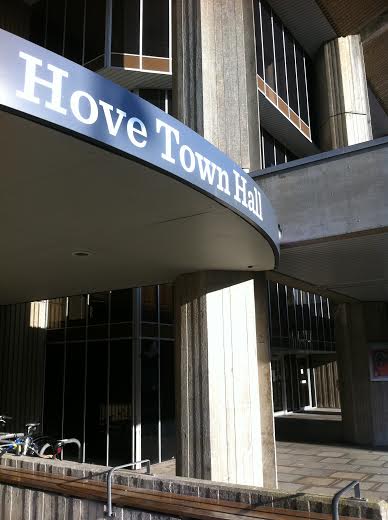
Councillors were split on how to use more than £2million in government money to support people in need during the winter.
Labour and Green councillors disagreed over how much money should go to families in Brighton and Hove to cover food vouchers during the school holidays.
During the Policy and Resources (Recovery) Sub-Committee on Thursday, 4 November, Labour councillors pushed to increase the value of vouchers given to disadvantaged families from £15 to £20.
But the Greens said it was important to also fund a pot of money for emergency grants.
At least half of the £2.1 million Household Support Fund from the government must be spent on children.
The council plans to spend more than £750,000 on £15 vouchers per week, per child, for low-income families covering October and February half terms and the Christmas and Easter holidays.
Families where children receive free school meals or those who have early years vouchers for childcare paces and Early Years Premium are eligible for the vouchers.
The second-largest amount, £404,000, is earmarked for the Local Discretionary Fund to pay for essentials for needy households ranging from gas and electricity to essential items such as replacing fridges or even paying for emergency bills.
Labour group co-leader councillor John Allcock called for £20 vouchers to help offset the loss of £20 a week to families who receive Universal Credit.
He pointed out £20 a week works out at a £1,040 a year loss to disadvantaged families.
Since May 2019 and May this year, the number of children entitled to free school meals increased by 1,628, with 6,568 youngsters entitled to the service across the city.
Councillor Allcock said children from the poorest households eat less fruit and vegetables, and parents are more likely to buy a narrow range of food to avoid waste.
He said: “I’m sure we all agree that it would be very difficult to nutritiously feed a family with, say, hungry 11 and 14-year-olds on £30 a week, so I think the proposed voucher allocation of £15 has been set too low.
“Of course, families need other resources to survive as well as food. So, our proposal to increase the vouchers to £20 will also allow greater flexibility in the household budget for other essentials at this time of year, such as fuel and warm clothes.”
His Labour co-leader Carmen Appich spoke in favour of increasing funding for vouchers and also more money for the emergency Warmth and Wellbeing scheme.
The scheme provides multi-agency advice from Money Advice, Citizens Advice and Brighton and Hove Energy Services Co-operative (BHESCO). It includes emergency energy top-up payments for people on are on key meters and free home energy surveys.
She said: “When I was a young struggling single parent back in the day, it would make a huge difference to me.
“There was a point at which you make a choice as to whether to feed your child properly or whether you eat yourself. I was quite thin in those days because I made the choice to feed my child.”
Green council deputy leader Hannah Clare said the two groups have the same aim, and she agreed with what the Labour group said but wanted to take a different approach.
She said council officers had worked with the community and voluntary sector to create a “good balance” to support as many people as possible.
Speaking in support of funding for the discretionary grant, Councillor Clare said: “If your fridge or your oven breaks, then that’s quite a big thing, a big one-off cost you have to pay for.
“Having that funding there is really vital, but it’s a big one-off cost. To help as many people as possible, you need as much money as possible.
“By providing money for those white goods or those fuel bills, you will help them have more money for food as well.”
Green council leader councillor Phélim Mac Cafferty said he understood Labour’s intention but expanding the food vouchers would not go to everyone who needed help to get out of poverty.
He said: “The government has thrown another sticking plaster on the enormous problem. It is another short-sighted approach to poverty.
“They think bunging money towards food vouchers will tackle low wages and all of the pay stagnation that we know the entire country is suffering from.
“Somehow throwing this money will tackle the rising cost of housing and fuel bills or the cruel decision to scrap £20 from Universal Credit.”
Councillor Mac Cafferty said people might micromanage every penny, but when the fridge or their car breaks, they should not be forced to go to “rip off” loan companies.
The Labour amendment was not voted through and vouchers will remain at £15 a week per child during the holidays.









